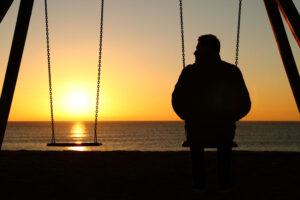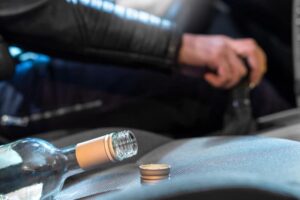The One Big Change You Need to Make in Order to Overcome Your Drug Addiction
 When things go wrong in your life, who do you blame?
When things go wrong in your life, who do you blame?
Yourself? Others? Your circumstances? Fate? God? Luck?
The way you answer this seemingly simple question will determine how well you do in recovery and whether you’re able to maintain your sobriety. It will also determine whether you’re able to get clean in the first place.
Today, let’s look at why your answer to this question is important to your recovery and what the experts say about how you should approach answering it in your life.
The “Locus of Control” in Your Drug Addiction
Psychologists call your answer to the “who is to blame” question your “locus of control.” It’s an important concept you’ll learn in recovery at Transitions Recovery Program.
“Locus of control” is a formal way of describing who’s in charge of the things happening in your life. The term was first developed by Julian B. Rotter in 1954 and has been used in the addiction treatment community ever since. People are said to have either an external or internal locus of control. We’ll talk about the difference between the two in a moment.
What is an External Locus of Control?
People with an external locus of control feel that the things happening in their lives are controlled by forces outside of themselves. This outside force can be one big thing—for example, the government—or it can be many smaller things, such as family, friends, the economy, personal history, medical diagnosis, etc.
While it’s true that everyone has things that are legitimately out of their control in their lives, people with an external locus of control tend to view most of the events in their lives as a consequence of people or things outside of themselves.
An Example of External Locus of Control
For example, a person with an external locus of control who fails a test will likely blame the test or the teacher for the low grade and resist considering what they might have done (or not done) to cause the failing score.
This limited view of personal agency (or ability to affect change) can have very negative consequences in the lives of people with an external locus of control. In the example of the failed test, the student with an external locus of control misses the opportunity to improve their performance because they are unwilling to shoulder any responsibility for the score.
Because the student feels they have no control over the situation, they actually give up any control they might have had in the first place. When the going gets tough, an external locus of control will cause people to give up before they even begin to try. This means that they fail at many things in life—routinely. As the pressures of all those failures build up, they begin to view life as more and more “unfair” until their viewpoint becomes a self-fulfilling prophecy.
Internal Locus of Control: The Key to a Life Free of Drug Addiction
On the other hand, those with an internal locus of control tend to view problems in their lives as within their control.
A student with an internal locus of control who fails a test will likely wonder what they can do personally to change their score the next time around. This means that they are willing to take the first step towards improving their grade, making them much more likely to succeed in the end than the student who is busy blaming the teacher.
Where is Your Locus of Control?
If you struggle with substance use disorder (SUD), it’s easy to see your disease and your substance use as outside of your control. In fact, feeling “out of control” is one of the hallmarks of addictive behaviors. For this reason, people with SUD often have an external locus of control.
If this describes you, the one big change you need to make in your life to overcome your drug addiction is changing your locus of control from external to internal. Change is possible, but you have to believe you can make changes in your life before anything will change.
If you recognize an external locus of control in yourself, it’s OK. We’ve taught thousands of people to flip the script and regain control of their lives. Call us today at 800-626-1980 to get started on the path to believing in your ability to call shots in your own life.

















